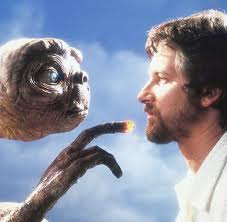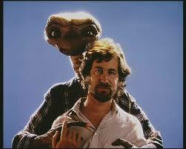
Spielberg played the clarinet in grade school and high school. He’s been collecting film scores since childhood as a hobby and once said, "If I weren't a filmmaker, I'd probably be in music." Learning music certainly influenced Spielberg, and it helped him develop the creativity required to be a visionary filmmaker.
Spielberg grew up with music in the house. His mother was a concert pianist and would put Steven on her lap while she played classical pieces. Even while she was pregnant with him, she spent much of her time at the piano playing music. With his mom, he would learn to tap the beats of the music she was playing. At a very young age, music was ingrained into Spielberg’s childhood development.
His mother Leah said that Steven had a highly developed imagination at an early age. For example, while Leah played the piano, Steven wanted the top of the piano opened so he could watch the strings vibrate. It actually scared him to look inside that big black piano and hear the massive musical sounds that erupted out of it. But he insisted to look inside the piano over and over again.
Being surrounded by music during childhood played a key element in the development of Spielberg’s creativity.
In fact, both his parents contributed synergistically to the great visionary whose films we enjoy so much. His mother contributed music and creativity, while his father was an engineer, a great storyteller and loved science fiction. The clearest proof of this synergy can be exemplified in the final scene of the film, “Close Encounters Of The Third Kind,” in which the scientists programmed music with their computers to communicate with the extraterrestrials. That scene was about his mother and father: music and science.
This leads us to an important point. Education doesn’t come just from the classroom. It comes from the lessons of one’s parents and guardians. Let’s not depend solely on the education system to enlighten the minds of future generations.

 RSS Feed
RSS Feed